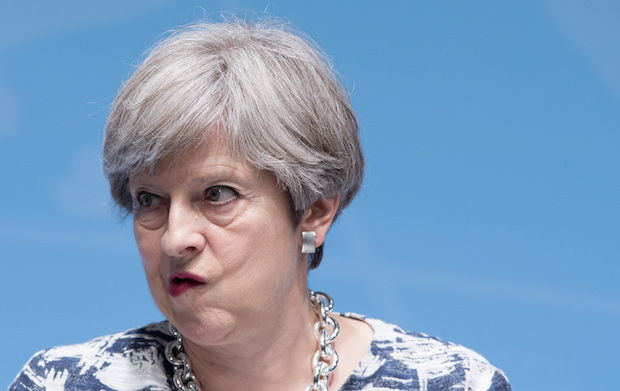If Theresa May is in it for the ‘long term’, does this mean that she plans to do big things with her premiership? The Prime Minister promised a great deal when she stood on the steps of Downing Street over a year ago, but has so far delivered a snap election which messed up her chances of actually achieving what she promised. She now has to rely on a party which doesn’t share all of her values – the DUP – or the good will of Labour MPs who happen to support what she wants to do.
But this is all about May’s weakness in the House of Commons Chamber. She can still make as many changes as she wants to policies using secondary legislation. As I say in my magazine piece this week, Number 10 has worked out that this is the way to stop the government looking totally pointless and has told departments that if they want to do something and they can do it via secondary legislation, then they can go for it.
The reason secondary legislation is particularly advantageous for a weak government like the one May now leads is that it is very poorly-scrutinised. Depending on the sort of legislation being used, it can appear on the Commons Order Paper without any debate at all, or it goes into a committee of MPs on which the government has a majority. And those MPs are always chosen by the whips and are normally on there either because they are loyal and happy to do boring donkey work in the hope of a promotion at some point or because they are in trouble and are being punished for rebelling or missing an important vote without permission. People don’t go on delegated legislation committees to scrutinise legislation. Often, they end up using them as a 90 minute slot in which to catch up with their emails. It is rare that the backbenchers from the governing party in one of these committees says anything at all.
Now, this would be fine if secondary legislation could only be used for details like the location or a road or even maybe the precise rate at which a benefit payment is increased according to inflation and so on. But governments of all hues like to whack much bigger policy changes into secondary legislation precisely because there’s less of a bother about debating the thing in the Commons. Remember that Andrew Lansley rather petulantly remarked to angry MPs during the row about the Health and Social Care Bill that he could have made most of the changes without primary legislation. The changes he was proposing were so big that the former NHS chief executive Sir David Nicholson had remarked that you could ‘see it from outer space’, yet they could have been crammed into tiny and short committee hearings.
The main reason May called the snap election was that she wanted a majority that was so big that, even if you couldn’t see it from outer space, you still didn’t have too bother too much about persuading everyone to get on board with what you were proposing to do. Now, she hopes to try to continue in that vein, just using the quieter method of secondary legislation. Many had predicted before the election result that a huge Tory majority would make scrutiny in the Commons much worse. But it’s not clear whether in a minority government, scrutiny in committees will be any better.







Comments